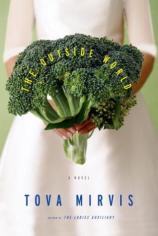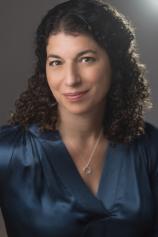Reading Group Guide
Discussion Questions
The Outside World

1. How does Bryan/Baruch’s return from Israel change the life of the Miller family? What reactions does he provoke in his father and his sister? When one family member becomes a strict interpreter of the religion that the entire family practices, is he a tyrant or a reformer? Since he protested his mother’s plan to give a speech at his wedding, what might his reaction have been if his mother had decided to write a novel like The Outside World?
2. Why is Shayna obsessed with weddings? What does her family history and upbringing explain about her desperate need to belong to the Orthodox community? Why does she keep her non-Orthodox past a secret? Why does she succumb to depression later in the novel?
3. Who is the ideal or intended audience of this novel? Does it seem that Mirvis wants to create a view of this closed community for "the outside world," or that she wants to show the Orthodox community a reflection of itself? How do the ideas she explores in the novel about belonging and not belonging, feeling trapped or stifled by one’s family, and the yearning for authentic spirituality move beyond the particular community she describes?
4. All four people in the Miller family have different approaches to their religious life. How would you describe the approach of each? How successful is Naomi in mediating among the various members of her family? Why does she turn to ritual and celebration to heal her family’s differences when psychology fails?
5. When we meet Tzippy, she is simultaneously dreaming of rebellion against her mother and raging against her unmarried fate. As the novel ends, she is married and pregnant. She hasn’t stepped outside the role her family prepared her for, but she has changed. How has she changed, and what kind of experience has she gained? Does the novel suggest that she will live life on her own terms, within the parameters of Orthodoxy, and that she and Baruch will make a better partnership than her own parents did?
6. Ilana, in questioning the restrictions of Orthodox family life, finds a potential ally in her father. Is the Miller family splitting in two, with Naomi and Baruch on one side, Joel and Ilana on the other? What aspects of the religious life is Ilana finding most difficult to accept? Why is taking off her shirt in public so outrageous an act of rebellion? Why does she feel betrayed by her brother?
7. What impression does Mirvis give of the delicate matter of sexuality in the courtship of Orthodox couples? Once married, how do Baruch and Tzippy adjust to their new intimacy?
8. How does the novel show the distance between the women’s and men’s spheres of responsibility in the Orthodox community? Why are the ways of the household, cooking, and child rearing so crucial to passing on the Orthodox way of life? What aspects of Orthodox life, as described in the novel, might present the most difficult challenges to an educated woman?
9. How does Mirvis evoke the special feeling of the Sabbath? What is the significance, for Joel, of arriving home late for Shabbos (240-41)? How does this event bring him and Ilana closer together? What is the significance, for Naomi, of Joel’s late arrival?
10. Why is Naomi driven to take such an active role in seeking meaning and answers in her life? What does she expect to find in books, meditation, and seminars on Jewish spirituality (245-49)? What is admirable about her as a character?
11. What are the challenges to children living in a society that is as insular as the community depicted in The Outside World? How do the children’s needs for independence or self-determination get worked out? How does Mirvis make readers feel the communal pressure towards conformity? How much room is there for dissent or individuality?
12. Why has Mirvis chosen The Outside World as a title? What is "the outside world" for Orthodox Jews? How does the outside world figure in the novel? Which characters most strongly feel the lure or the pressure of the outside world?
13. At what points in the story does Mirvis’ compassion for her characters and her love of Jewish ritual come across most strongly?
14. Mirvis brings a good deal of humor to her writing. Which incidents, for you, were most amusing?
15. Does the ending of the novel suggest that Tzippy will take an active role in healing her own family’s troubles --- her mother’s despondency, her father’s dangerously unrealistic dreams, her unguided little sisters? Or will she return to Memphis and take up her own family life, keeping a distance from her difficult parents?
The Outside World
- Publication Date: March 30, 2004
- Hardcover: 304 pages
- Publisher: Knopf
- ISBN-10: 1400041619
- ISBN-13: 9781400041619








